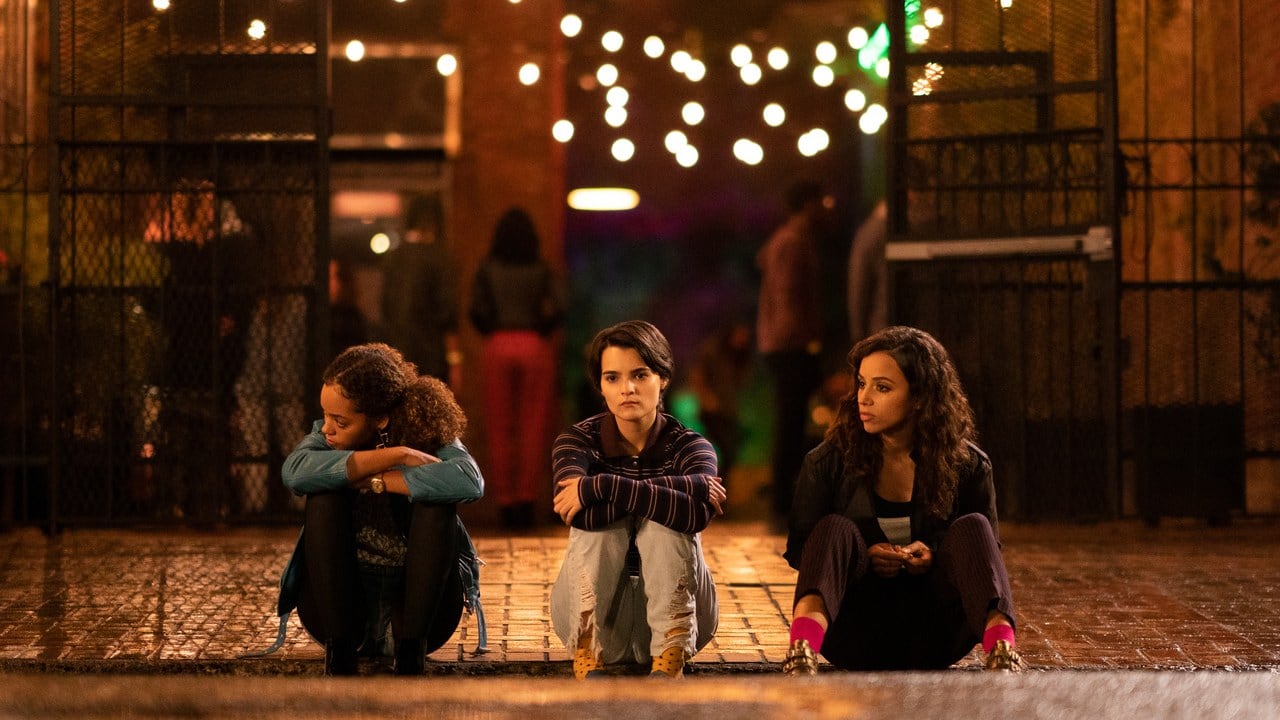"Everyone's obsessed with keeping Portland weird," explains resident bad girl/secret smartie Moe (Kiana Madeira) to unassuming transfer Elodie (Brianna Hildebrand) near the beginning of Netflix's locally filmed new teen dramedy Trinkets. "It's kind of oppressive."
Like most of Moe's sentiments, this feels trite and at least a partial lie, but not altogether wrong.
Recently relocated from Albuquerque, N.M., following the tragic death of her mother, Elodie seems initially entranced by the charms of this lovingly rendered version of Puddletown. Our fair burg does offer fresh hunting grounds for a transplant with a habit of pilfering from stores. That addiction ends up sending Elodie to Shoplifters Anonymous, where she meets fellow kleptos Moe and stunning scion of privilege Tabitha (Quintessa Swindell). Yet for all the blossoming wonders of an alternative Eden, the overriding atmosphere surrounding the fictional Lakeshore High School (meant to be some blend of Wilson and Lake Oswego highs, actually Gladstone) feels unbearably oppressive.
Make no mistake, Trinkets depicts the model urban high school for our era—a multicultural festival of ingrained tolerance for every conceivable race, creed and sexual orientation. Parents do actually understand their kids, but cannot entirely escape their own neuroses to actualize good intentions. Snide hauteur from the prom queen means only that she's hurting, too. Bullying, the cornerstone of classroom angst, may as well not exist. The closest we get to an antagonist is Tabitha's godawful boyfriend, Brady (Brandon Butler), a garbage person and barely pitiable creature who embodies an abusive archetype on the wrong side of history.
The absence of conventional tropes and stock villains hamstring the none-too-skillfully arranged narrative. Based on a YA novel by screenwriter Kirsten Smith (Legally Blonde, 10 Things I Hate About You), the dialogue is no more stilted or clunky than, say, CW's Riverdale, but the story beats go nowhere. Too high-minded for momentum yet unable to muster nuance or insight from textured characters, it's shallow without the simple pleasures of trashy TV.
The showrunners' distaste for teenage soap conventions also allows them to resist every opportunity to moralize. The girls drink socially without consequence. Gobbling MDMA at a party threatens nothing worse than boisterous over-shares. Nobody finds anything at all strange about Tabitha and Elodie's flirtations with fellow SA attendee and bartender Luka (Henry Zaga). Even though the entire cast looks a decade past the age of consent, shouldn't someone question why the hunky guy slinging drinks at the local nightclub would be courting high school juniors?
Shoplifting is more than just a storytelling contrivance for assembling the trio of main characters or an emotive symbol of rootless girls testing the fates, it's continually regarded as an end in and of itself. The show's finest measure comes when Elodie, trudging home after a dispiriting rager, spots a convenience store gleaming in the distance. Once inside, as her fingers dance upon the shelves, the showrunners ever-so-briefly indulge in ecstatic flourish: The lights go up, a disco chorus swells, and the palpable delight in her powers of larceny overwhelms. When Dad discovers her hope chest of purloined goods, Elodie's explanation—she thought the universe owed her a trinket or two after taking away her mother—comes across less as apology than mission statement.
"Portland gives good view," Moe tells Eldoie as they gaze upon the Tilikum Crossing aglow, lights strung over the bridge like so many discarded bracelets. That's undeniably true, of course, but somewhat damning within the moment. The implication suggests Portland, like a mountain of trinkets, shines as a glittering distraction utterly removed from the humdrum routines of proper existence. And however understandable given the deadening burdens imposed upon our heroines, that's an odd perspective for a teenage drama to take.
Only when the under-plotted series finally delivers a season-ending cliffhanger, and Elodie opts toward an unexpected, though not unearned, chance to snatch back some semblance of joy, do we see glimmers of how she might manifest that store-boosting magic through lawful means. While adolescence (like, gulp, Portland) may not be where everyone would want to permanently live, it's really not a bad place to visit.
SEE IT: Trinkets streams on Netflix.

